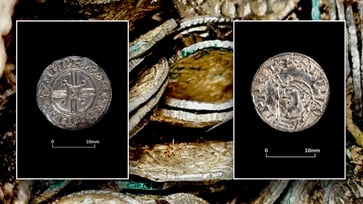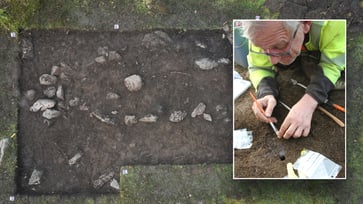The earliest evidence of Christianity north of the Alps has been discovered by archaeologists, according to a report.
The artifact, which is purely Christian, is unique for its era as it does not mention Judaism or paganism.
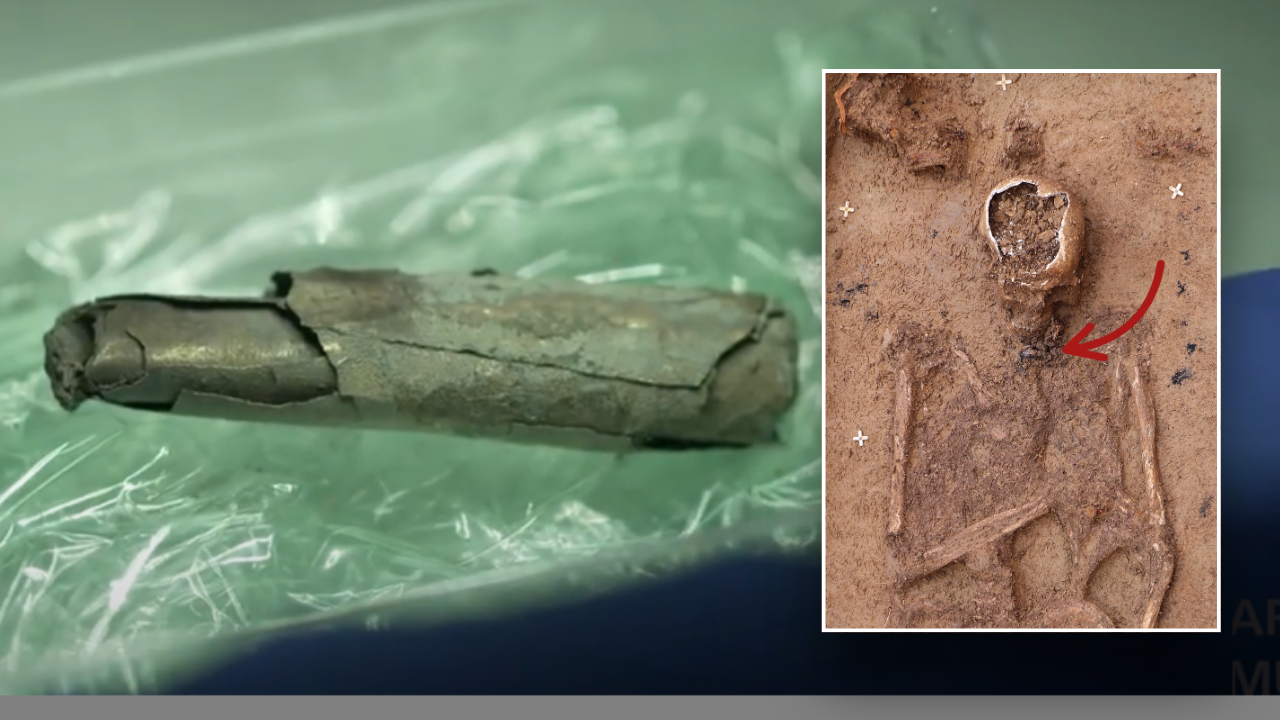
Recently, archaeologists have unearthed the earliest known evidence of Christianity outside of Italy, which they consider a significant testimony to the faith's early history.
The Frankfurt Archaeological Museum has recently made public the Frankfurt silver inscription, which was discovered in 2018 and has been analyzed and studied for years before its release this month.
An inscription on silver foil, consisting of 18 lines written in Latin, was discovered wrapped in a small silver amulet. This engraving dates to between 230 and 260 A.D. and is known as Frankfurt silver.
The museum announced that the artifact was discovered in a 3rd-century grave in Hesse, Germany, which was once the Roman city of Nida. The inscription on the artifact reads, "In the name of Saint Titus, Holy, holy, holy! In the name of Jesus Christ, God's Son!"

Saint Titus was a first-century Christian missionary and disciple of Paul the Apostle. The inscription also calls for the amulet to safeguard "the individual who offers to the will of the Lord Jesus Christ, God's Son."
"Jesus Christ is confessed by all, in heaven, on earth, and underground," the text concludes.
The silver foil, which had been crumpled for 1,800 years, was "digitally unrolled" by archaeologists to decipher the inscription written in Latin.
In May, the text was decrypted using computed tomography and advanced technological equipment, and it was translated over an extended period.

"Markus Scholz, a professor at Goethe University, stated that the translation process took weeks or even months to come up with the next idea. He enlisted the help of experts from the history of theology, among others, and worked together to decipher the text."
Scholz described the inscription as "very intricate" and referred to its creator as a "skilled wordsmith."
"It is unusual for this time that the inscription is completely in Latin," Scholz remarked. "Such inscriptions were usually written in amulets in Greek or Hebrew."
The inscription is not written in Hebrew, does not mention Judaism, and lacks pagan elements, making it stand out even more.

"The museum's press release stated that it was unusual that the inscription did not mention any other belief system besides Christianity. Typically, until the fifth century, a blend of different faiths was common with precious metal amulets of this kind. There were often still elements of Judaism or pagan influences."
"The amulet does not mention Yahweh, the almighty God of Judaism, nor the archangels Raphael, Gabriel, Michael, or Suriel, nor any forefathers of Israel like Isaac or Jacob, and it contains no pagan elements like demons. It is purely Christian."
The artifact was described as a crucial testimony of early Christianity globally in the press release.
"No early, authentic proof of pure Christianity has been found north of the Alps, and all other discoveries are at least 50 years younger."

"While historiography mentions the existence of Christian groups in Gaul and Upper Germania in the late second century, evidence of Christian life in the northern Alpine regions of the Roman Empire is generally limited to the fourth century AD."
"Experts concur that these 18 lines will significantly enhance prior research on the diffusion of Christianity and the late Roman era on the Rhine's right bank."
lifestyle
You might also like
- Post-inauguration, the surprising truths about DC travel costs.
- Melania and Donald Trump celebrate their 20th wedding anniversary: View the images.
- John Schneider, known for his role in 'Dukes of Hazzard,' remains steadfast in his belief: "God has a plan."
- Notre Dame football coach and Catholic convert is 'not shy about' the importance of faith.
- Trump confidant and unofficial spiritual advisor: "God is granting America another opportunity"

